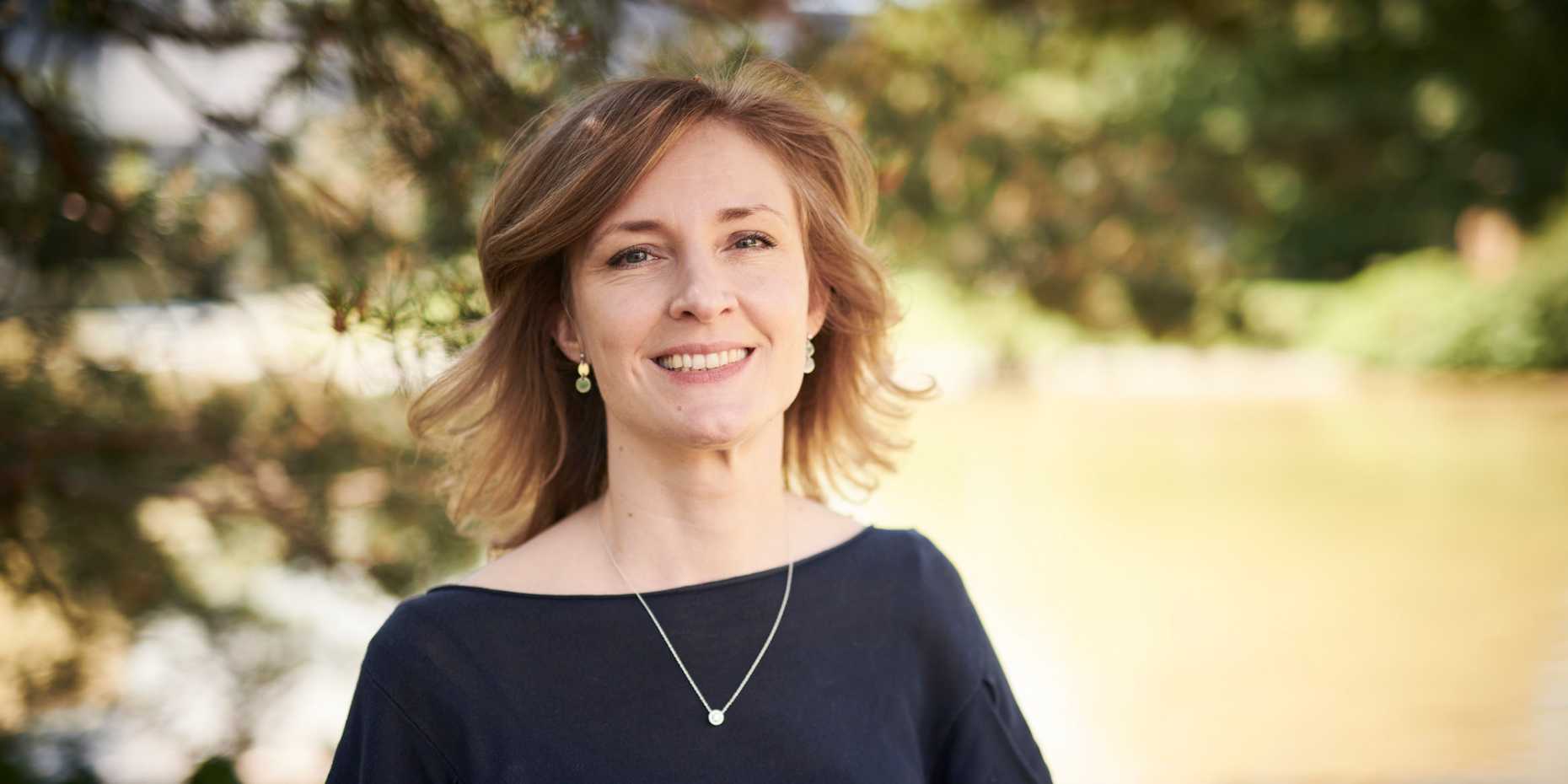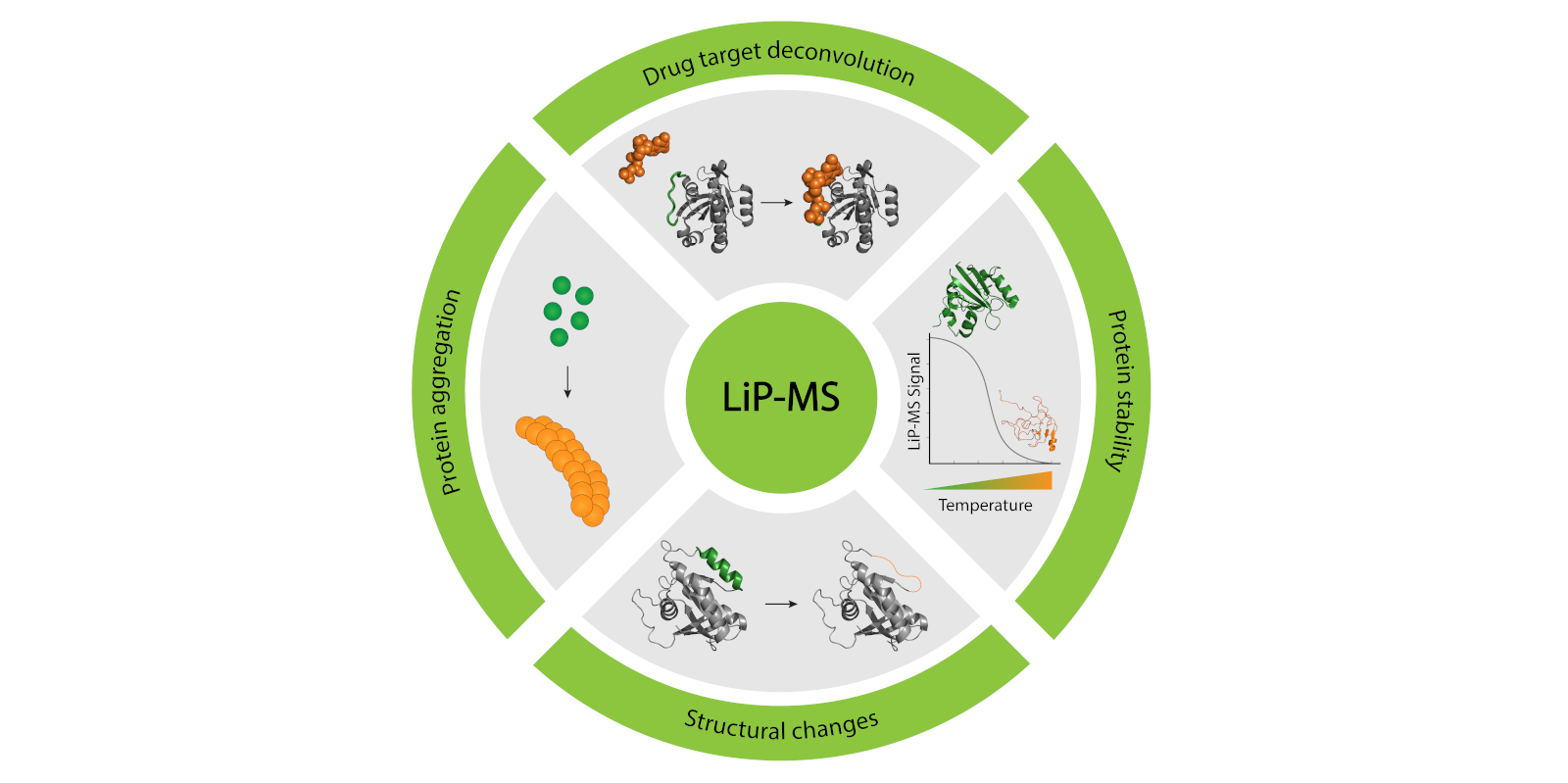Heralding a new era in protein analytics
Systems biologist Paola Picotti receives this year’s Rössler Prize for her groundbreaking work in the field of proteomics. She has developed a method of measuring structural changes in thousands of proteins at the same time, paving the way for personalised therapy.

The announcement in March 2003 that a human genome had been completely sequenced for the first time caused a furore. It raised hopes that diseases such as cancer or MS could be traced back to certain genes and this knowledge used to develop highly specific therapies. However, it soon became apparent that the organism and its various diseases are a great deal more complex. We now know that deciphering the proteome – the entire set of proteins and their interactions – is an additional piece of the puzzle in understanding human health. This specialist field is known as proteomics, and Paola Picotti, Associate Professor for Molecular Systems Biology at ETH Zurich, is one of its leading lights.
At the age of 43, she has achieved what would be a life’s work for others. Appointed associate (tenured) professor in 2017, she has headed a 20-person research group ever since. She has authored 78 publications, many of which have appeared in the most prestigious journals, and twice received grants from the European Research Council (ERC). In 2019, she won the EMBO Gold Medal, awarded annually for internationally recognised contributions to the life sciences.
This is now being followed by the Rössler Prize in 2020. Worth 200,000 Swiss francs, it is the most highly endowed research award at ETH Zurich and was made possible by a gift to the ETH Foundation from ETH alumnus Max Rössler. ETH President Joël Mesot is delighted. “Paola Picotti is an exceptional scientist of international renown,” he says. “The technologies she has established expand our understanding of fundamental processes of human health, particularly those that lead to maldevelopments and diseases such as cancer or Alzheimer’s.”
“So complex, so mysterious”
Paola Picotti grew up in Udine, near Trieste. Her mother taught mathematics; her father worked for an electronics company. She was one of those children who constantly fires questions at their parents. “I wanted to understand things,” Picotti recalls. “Whenever I did not understand something, I wouldn’t be put off.” At secondary school, fascinated by chemistry, she was soon taking part in regional competitions for schools. “I was also extremely interested in medicine, but I am just a bit too squeamish when it comes to the human body,” Picotti says. She therefore enrolled to study medicinal chemistry at the University of Padua – the very same university at which Galileo Galilei had taught as a professor of mathematics in the 16th century. It was there that she saw the molecular structure of a protein for the first time. “It was so complex, so mysterious – I was immediately hooked,” she remembers.
As the building blocks of every cell, proteins provide them with structure. They are also responsible for transporting materials and monitoring the molecular processes in the cell. In her doctoral thesis, the researcher got to grips with protein chemistry, learning mass spectrometry in the process. “I quickly realised its potential for proteome analysis.” While working on her doctoral thesis in Padua, she focused on the characterisation of neuroglobin, a protein that is involved in transporting oxygen to the human brain.
Her dissertation was a challenge both in terms of its content and its organisational aspects. A few months after she had started, her mentor fell ill. From then on, she was largely left to her own devices. She established collaborations with researchers in Belgium to obtain good-quality samples and acquired the key skills for analysis through self-study. “Although it was extremely frustrating at first, it proved to be a rewarding experience in the end,” Picotti says today. “I learned how to organise my research, work independently and pursue my personal interests.”
A source of inspiration: Aebersold
Her move from Padua to Zurich in January 2007 reflected her commitment to proteomics. Ruedi Aebersold, co-founder of the Institute of Molecular Systems Biology at ETH Zurich, is a pioneer in the field of proteomics. Picotti was convinced that there she would have the tools to further her research career in protein analytics. Aebersold answered her request by inviting her to join his lab as a visiting researcher, although “without pay and with the caveat that he would not be able to spare much time to act as mentor,” she says. The recently retired professor emeritus was responsible for dozens of employees in laboratories in Zurich and Seattle at the time. Picotti accepted, moved into a hall of residence on ETH’s Hönggerberg campus for nine months and scraped by on a fellowship from Italy.
“My English was still pretty poor in those days,” she recalls. “After the first group meeting, I thought, well, that’s the end of that, I’ll never be able to prove myself here.” But things turned out very differently. After nine months, Aebersold offered Picotti a postdoc position. “Ruedi was a tremendous source of inspiration. He was always ready to listen to colleagues’ ideas, encouraging and motivating them to go that one step further,” she says.
During her four years at the Institute for Molecular Systems Biology, the young researcher developed a new method of analysing proteins based on mass spectrometry. She spent months in the basement lab at the institute, which houses the group’s instruments, fine-tuning measurement parameters and new data analysis techniques. The result was selected reaction monitoring (SRM), a proteome analysis that reliably identifies a precisely defined selection of proteins in complex samples in record time.
In 2013, SRM was named method of the year by the respected journal Nature Methods. Today, it is used by biotechnologists all over the world and specialised companies sell customised hardware and software for it. “That was a major achievement,” says Picotti. “It brought me international acclaim – and the necessary self-confidence to boot.”
The latter is particularly important in the male-dominated research landscape. Picotti has experienced the ignorance of colleagues more than once, as they dismissed her successful application for research funding or her awards as all down to her gender. That is why supporting young female researchers is so important to Picotti. When she participates in panel discussions, she emphasises improving the work-life balance. With two sons of her own and a husband who works full-time as a professor at the University of Zurich, she knows just how difficult it is. Spurred on by her experiences, she launched a pilot project in her group that enables parents to request childcare support in the event of illness or if the nursery is closed.
Completely new applications
Picotti’s most recent awards, the EMBO gold medal and the Rössler Prize, pay special tribute to her development of limited proteolysis mass spectrometry (LiP-MS). The technique is a combination of LiP, a biochemical process Picotti often used while writing her doctoral thesis, and her mass spectrometry expertise. It enables detecting protein structural changes for thousands of proteins simultaneously in complex biological and clinical samples – for thousands of proteins at once. Using conventional methods, the detailed characterisation of a single protein used to take months at a time. “Thanks to LiP-MS, we can employ mass spectrometry to measure protein structures for entire proteomes,” Picotti explains. “This makes it an interesting option for completely new areas.”
Picotti is confident that the method offers great potential for developing new therapies. It may be possible in the future to test the effect of drug candidates on protein interactions directly on tissue samples taken from the brain, for example. “LiP-MS advances our understanding of where active substances attach to proteins and what effect they have there,” she explains.
Her group is currently developing structural biomarkers based on LiP-MS. These will enable the researchers to analyse body fluids from Parkinson’s patients and detect a number of proteins that undergo structural changes over the course of the disease. In the future, these markers could help diagnose Parkinson’s at an early stage, paving the way for more targeted therapy.
Interdisciplinary inspiration
Asked to give career advice to young researchers, Picotti says: “Finding your own research niche is crucial. To do so, you have to look at things from your personal perspective and not simply be part of the mainstream.” From time to time, therefore, she also attends conferences outside her subject area, for example, those aimed at medical professionals or computer scientists. “It helps to expose yourself to other ideas and ways of thinking. This was how the idea for LiP-MS originally came about,” she explains.
Picotti plans to spend the Rössler prize money in three ways. The first two are to further the development in her team and purchase new laboratory facilities. She also wants to donate part to the Coronavirus Impulse Fund launched by the ETH Foundation in the fight against the pandemic. “I like to think that, in this way, I can encourage ETH research into COVID-19 and help students experiencing financial hardship,” she says.
Rössler Prize
ETH alumnus Max Rössler gifted ten million Swiss francs to the ETH Foundation in 2008. The interest earned on the capital is used to fund an annual prize for ETH professors who are “rising stars” in their particular area of research. Worth 200,000 Swiss francs, it is ETH Zurich’s most generous research award. Max Rössler studied mathematics at ETH Zurich and wrote his doctorate on orbit calculations in space travel. After a spell as guest researcher at Harvard University, he returned to ETH, where he was a senior scientist and lecturer at the Institute of Operations Research from 1967 to 1978. He later worked in wealth management before retiring from business life. In 2013, he was awarded the title of Honorary Councillor by ETH Zurich.

Comments
No comments yet